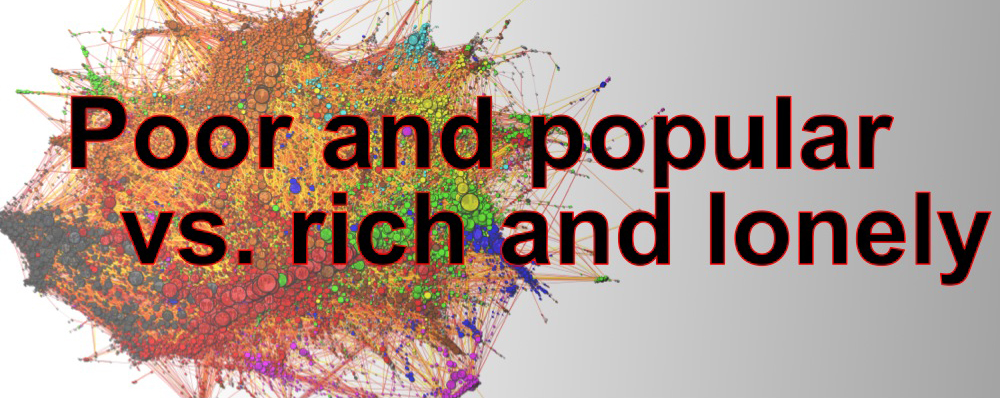 |
||
Title: Data enrichment and transformation in the LOD context: Poor and popular vs. rich and lonely—Can't we achieve both? |
||
Session Abstract |
||
|
Organizations such as libraries who are working on the exposure of their legacy metadata as linked and possibly open data are confronted with a controversial challenge. On the one hand, taking the benefit of Semantic Web technologies to transform or create Library information implies use of rather complicated mechanisms, and domain-specific vocabularies in order to make the most of bibliographic information in a Linked Data context—to make linked data work properly, they need to align and group information using a variety of rich vocabularies even if some of this information remains hidden to the end-user. On the other hand, it seems challenging to combine this approach with a broad and interoperable dissemination of the data among communities outside of the library world, which is a major objective of Linked Data projects—to encourage broader communities to reuse Library data and encourage new combinations and confrontations between datasets to make libraries more useful in the Web environment. How specific or generic should we be? Is this an "either or" situation or can we think of another way to serve our various datasets according to a diversity of needs, specifications and expectations from heterogeneous communities? In other words, are we really doomed to be poor (in our data models and vocabularies) in order to be popular? |
||
|
|
||
Session Panel |
||

Gordon Dunsire, Independent Consultant |
Moderator Biography: Gordon Dunsire is an independent consultant. He is co-leader of the DCMI Bibliographic Metadata Task Group and a member of the DCMI Advisory Board. He is also Chair of the IFLA Namespaces Technical Group and Chair-Elect of the Joint Steering Committee for Development of RDA. He writes and publishes internationally on library linked data and the semantic interoperability of bibliographic data in the Semantic Web. |
|
|
|
||

Gildas Illien, Bibliothèque nationale de France |
Panelist Biography: Gildas Illien is Director of the Bibliographic and Digital Information Department, the metadata hub and National Bibliographic Agency of the National Library of France. He supervises the overall strategy, standardization, data processing and development efforts of the BNF to move its catalogues towards Linked Open data with projects such as data.bnf.fr. Since 2011, Gildas also serves as Vice Chair of the EURIG European Interest Group on RDA. |
|
|
|
||

Sébastien Peyrard, Bibliothèque nationale de France |
Panelist Biography: Sébastien Peyrard has worked since 2008 at the National Library of France as metadata specialist and digital preservation expert in the Models and Standards Office of the Bibliographic and Digital Information Department, where he is responsible for maintaining the data model of BnF's preservation repository (SPAR) and its METS and PREMIS implementation. He is also working in Linked Data technologies as the preservation repository uses them for preservation metadata querying. He has been involved in the conception of the PREMIS ontology and is a member of the METS Editorial Board and of the PREMIS Editorial Committee since 2011. |
|
|
|
||

Lars Svensson, Deutsche Nationalbibliothek |
Panelist Biography: Lars Svensson works in the Information technology department of the German National Library as an advisor for knowledge networking. His current research focuses on the use of library information as linked data on the so-called Semantic Web. Before joining the Deutsche Nationalbibliothek in 2003, he worked as a software developer and in petrochemistry. |
|
|
|
||

Daniel Vila-Suero, Universidad Politécnica de Madrid |
Panelist Biography: Daniel Vila-Suero is a researcher and developer at the Ontology Engineering Group from the Technical University of Madrid. He is the technical leader of the datos.bne.es project. He participated in the W3C Library Linked Data Incubator Group, where he was the main editor of one of the reports published by the group. He currently participates in the W3C Government Linked Data Working Group, and the Best Practices for Multilingual Linked Data Community Group. Previously, he has worked as a software engineer with a focus on web projects, especially in Germany where he contributed, both as developer and technical leader, in a number of projects within the cultural and media domain (portals, web services, e-commerce solutions…). |
|
|
|
||

Ricardo Santos Muñoz, Biblioteca Nacional de España |
Panelist Biography: Ricardo Santos Muñoz is a librarian, who, after a short time in technology consulting, started working in 2002 at the National Library of Spain as chief of Authority Control Section (from 2005), then chief of Standardization Service (since 2012). He coordinates the cataloguing and authority practice of the BNE and represents the Library in national and international working groups, following international developments and discussions about rules and models, such as VIAF and other Linked Open Data initiatives. . |
|
![]() DCMI's work is supported, promoted and improved by « Member organizations » around the world:
DCMI's work is supported, promoted and improved by « Member organizations » around the world:
 |  |  |
 |  |  |
 |  |  |
 |  |  |
 |
![]() DCMI's annual meeting and conference addresses models, technologies and applications of metadata
DCMI's annual meeting and conference addresses models, technologies and applications of metadata


